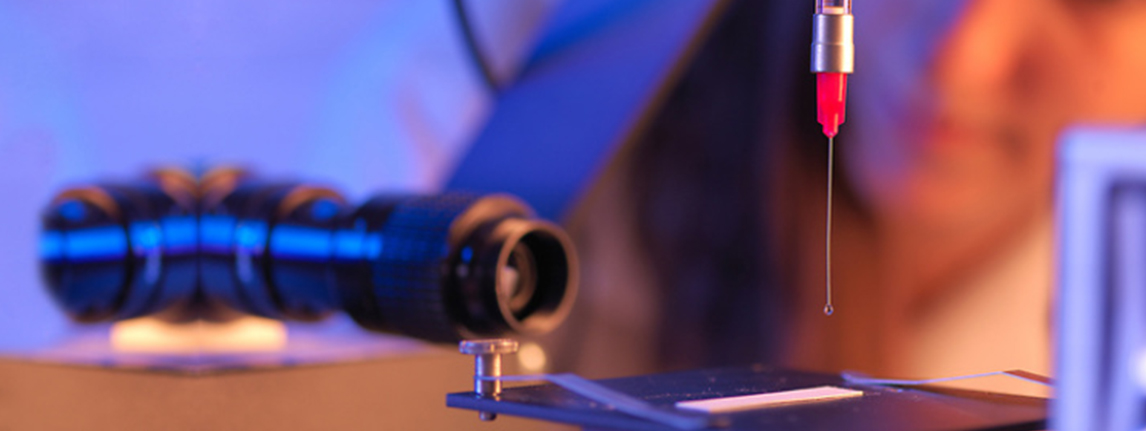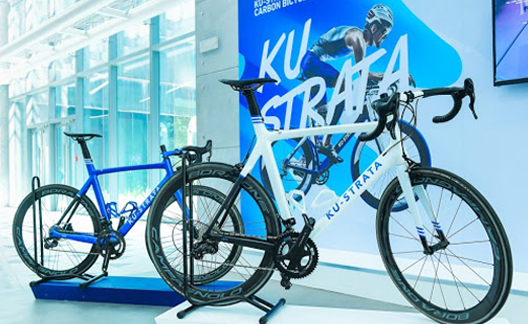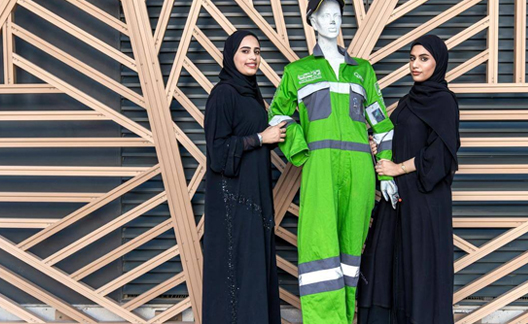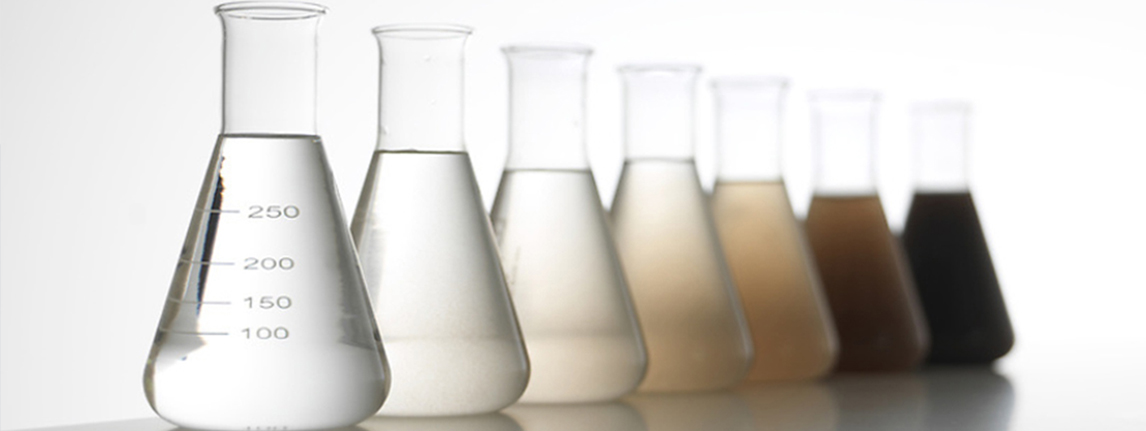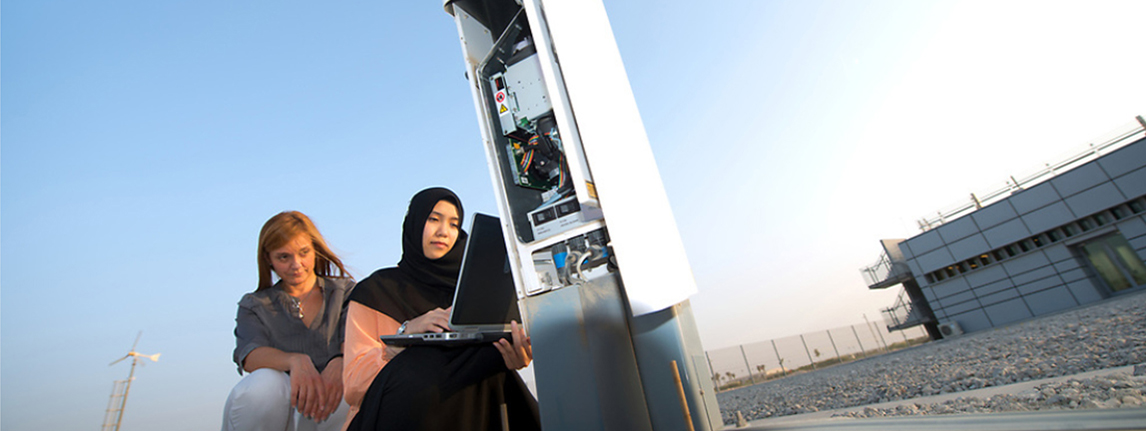Khalifa University fosters an organizational culture that promotes energy and water conservation and engages with its stakeholders to encourage energy and water-saving behavior.
The EHS Office leads KU’s efforts to improve energy efficiency on campus in various ways in order to reduce our energy consumption, cost, and carbon footprint, and to support the UAE Water Security Strategy 2036 and UAE Energy Strategy 2050, by abiding by the following guidelines:
- Setting clear Energy and Water targets and ensuring these targets are being met and communicated
- Monitoring and regularly assessing energy and water aspects
- Conducting programs promoting energy-efficiency
- Ensuring environmental and energy best practice is properly considered and appropriately applied within all new build and refurbishment projects
- Minimizing the energy requirements of our buildings
- Utilizing sustainable sourced energy and water
- Implementing a Purchasing Policy that promotes use of goods and services that have a lower energy, carbon, environmental and social impact
- Publishing an annual Environmental Report to include a summary of environmental and energy performance
- Developing and maintaining environmental frameworks and reporting that promotes data integrity enabling transparent communication and continuous improvement




